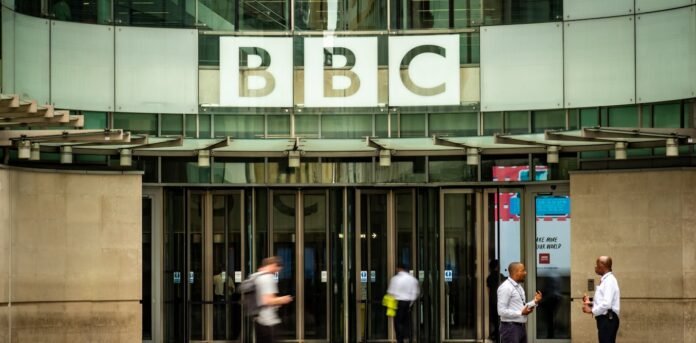In a world of fake news and disinformation, factchecking claims and the veracity of images has become an important part of impartial journalism. People invest their trust in information sources they believe are accurate.
With this in mind, the BBC launched its Verify service in May 2023. Its more than 60 journalists routinely factcheck, verify videos, counter disinformation, analyse data and explain complex stories.
Then in June 2025, the BBC launched Verify Live, a blog that tells audiences in real time what claims they are investigating and how they are being checked.
At the Cardiff School of Journalism, Media and Culture at Cardiff University we have been monitoring BBC Verify since its launch. And we have systematically tracked the first month of BBC Verify Live from June 3-27 this year, examining all 244 blog posts as well as the hundreds of claims and sources that featured.
We’ve found that the service places a heavy emphasis on foreign affairs. We argue that it could (and should) be used more to factcheck UK politics, enhancing the quality of the BBC’s impartiality journalism and serving the public service broadcaster’s domestic audiences.

Get your news from actual experts, straight to your inbox. Sign up to our daily newsletter to receive all The Conversation UK’s latest coverage of news and research, from politics and business to the arts and sciences.
Our analysis found international stories made up 71% of all BBC Verify Live coverage. The coverage largely focused on verifying international conflicts and humanitarian crises, from the Middle East and Ukraine to the recent plane crash in India.
This might reflect the large number of major international stories that occurred over the first month of BBC Verify Live’s launch. But the emphasis on foreign news was also evident in our analysis of the main BBC Verify service over the last 18 months. We monitored how much the factchecking service appeared on the BBC’s News at Ten, and found it was used more often in coverage of foreign affairs.
One exception was during the 2024 general election campaign, when BBC Verify was used to challenge politicians’ claims, and scrutinise policies around migration and the economy. BBC Verify has also covered recent major political developments, like the budget and announcements of flagship government policy.
The emphasis on covering international conflicts is consistent with its editorial mission to “analyse satellite imagery, investigate AI-generated content, factcheck claims and verify videos when news breaks”. BBC Verify regularly uses satellite mapping and geolocation data, which most newsrooms do not have at their disposal, to factcheck images and social media posts.
However, the resources and expertise Verify has could also be used to more regularly factcheck false or misleading claims in domestic political issues. This could be important to building audience trust at a time when the BBC’s impartiality is regularly questioned, while helping people better understand political debates in the UK.
Our past research with media users suggests they want journalists to be bolder and more transparent when assessing the credibility of politicians’ competing claims. BBC Verify is a logical tool to do this.
Two years after it launched, Verify is considered one of the most trusted factchecking sources in the UK by the University of Oxford’s Reuters Institute for the Study of Journalism and the most used by media regulator Ofcom.
BBC Verify has proved it can effectively use its resources and expertise to unpack and challenge domestic political claims – covering the spending review and party manifestos ahead of the 2024 general election. We have previously analysed how BBC Verify robustly challenged a misleading Conservative party claim about a future Labour government raising taxes during the election campaign.
Interrogating real-time claims
BBC Verify Live takes a variety of approaches to its analysis of real-time claims. We assessed all claims appearing in blogs throughout most of June 2025 and discovered that 22% were challenged to some extent (found to be inaccurate), while 23% were upheld (considered accurate) and 13% partially upheld.
Meanwhile, 10% were still being verified at the time the blog was posted (but may have been upheld or challenged in subsequent coverage), and 12% had additional context added to them. One fifth of all claims were not subject to any clear judgement about their accuracy.
BBC Verify Live most often used the UK or official foreign governments, and their militaries or agencies, as the main corroborating sources to factcheck claims, or the focus of the claim being investigated in some stories. These made up well over three quarters of sources in factchecking coverage. There was, comparatively, limited use of think tanks, policy institutes, nongovernmental organisations, experts, academics or eyewitnesses.
Just over one in ten claims had additional context added to them (as opposed to verifying or challenging a claim). This was most often the case in blogs about domestic affairs and rival political claims.
Given the recent cuts to the BBC’s World Service, Verify’s international news agenda will bolster the public service broadcaster’s worldwide profile and credibility. Yet, for BBC Verify to enhance impartiality and trust with domestic audiences, we would argue it should play a more prominent role in routine political reporting, not just during elections or high-profile stories.






